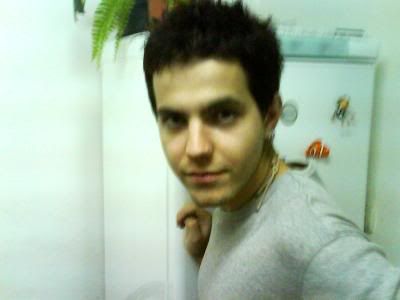
Brown voices Gaza ceasefire hopes
Brown: "This is the darkest moment yet for the Middle East"
Gordon Brown has said he is hopeful a basis for a truce in Gaza will be found - but called recent events the "darkest moment yet for the Middle East".
He said a ceasefire must mean an end to rocket attacks and Israeli troops in Gaza, as well as stopping weapons being smuggled into Gaza by tunnels.
The prime minister said he had put forward proposals which he believed could help achieve a ceasefire.
He spoke after Israeli shelling caused scores of casualties at a Gaza school.
UN officials said at least 30 people died and 55 were injured.
| Gordon Brown |
Mr Brown said any sustainable ceasefire would have to ensure security for both Israelis and Palestinians.
"This is a humanitarian crisis. This is the darkest moment yet for the Middle East and it affects the whole of the world," he said.
"It's because of that that we must get humanitarian aid that we are promising in."
He said he had spoken to the leaders of a number of countries - including Egypt and Turkey - and had put forward proposals, which, he believed, could help achieve a ceasefire.
Diplomatic efforts
"I am hopeful that the basis on which an immediate ceasefire can take place can be found," he said.
But he added: "It is not possible to see a solution to this without some kind of international engagement that will protect the security of the Israeli people and will create the viability for open borders to be given to the Palestinian area in Gaza."
For the Conservatives, William Hague called for an immediate end to rocket attacks by Hamas and said it was not in Israel's interests to continue a lengthy operation as it would damage the prospect of wider peace in the Middle East.
Foreign Secretary David Milliband's reaction to UN school strike
"The only long-term solution is a negotiated two-state agreement that achieves a viable and secure Palestinian state living alongside a secure Israel with her right to live in peace and security recognised by all her neighbours," he said.
Lib Dem leader Nick Clegg has criticised the EU for its "weak" reaction and said member states should have threatened to sever trade links with Israel if the bombardment continued.
Diplomatic efforts to try to end the violence continue. French President Nicolas Sarkozy said he had asked his Syrian counterpart, Bashar al-Assad, to help convince Hamas to co-operate with efforts to end the Israeli offensive.
US Secretary of State Condoleezza Rice is to hold talks in New York with Palestinian Authority President Mahmoud Abbas, who is at the UN with several Arab foreign ministers to lobby for a ceasefire.
Palestinian medical sources say up to 600 people have been killed since the Israeli assault began ten days ago, in a bid to stop Hamas militants firing rockets into southern Israel.
Four Israeli civilians have been killed by rocket fire from the Gaza Strip in that period.
And five Israeli soldiers have died, four in a so-called "friendly fire" incident.
Israel says its offensive is stopping militants firing rockets, but at least five hit southern Israel on Tuesday, with one reaching the town of Gedera, about 40km (25 miles) from Gaza, and injuring a baby.
A number of children were among those who died when Israeli artillery shells landed outside the UN-run school in Gaza, doctors at nearby hospitals said.
An Israeli military spokesman said that, according to initial checks, its soldiers had come under mortar fire from militants inside the school.
"In response, the forces fired a number of mortar rounds into the area," he told the Reuters news agency.
Asked about the shelling of the school, UK Foreign Secretary David Miliband said: "I've just landed in New York and been told of the terrible, shocking news of 30 further civilian deaths in a UN school.
"I think that this devastating news underlines the need for the immediate ceasefire that the prime minister and I have been calling for."

No comments:
Post a Comment